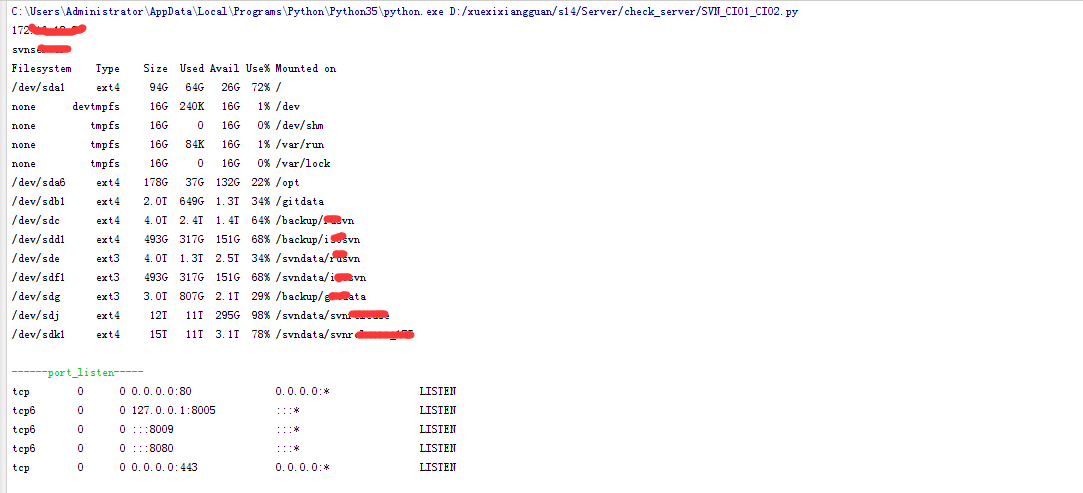#!/usr/bin/env python
# _*_ coding:utf-8 _*_
# Author:Mazhenkai
#import os
import paramiko
def cat_ip_host_disk():
stdin,stdout,stderr = ssh.exec_command(" ifconfig eth0|grep 'inet '|awk -F '[ :]' '{print $13}';hostname;df -hT",get_pty=True)
res,err = stdout.read(),stderr.read()
result = res if res else err
print(result.decode())
def Svn_listen():
stdin,stdout,stderr = ssh.exec_command("ifconfig eth0|grep 'inet '|awk -F '[ :]' '{print $13}';hostname;df -hT",get_pty=True)
result = stdout.read()
print(result.decode())
print("�33[32m------port_listen-----�33[0m")
stdin,stdout,stderr = ssh.exec_command('netstat -an | grep 80 | grep LISTEN;netstat -an | grep 443 | grep LISTEN',get_pty=True)
res,err = stdout.read(),stderr.read()
result = res if res else err
print(result.decode())
def Ci_port():
print("------port_listen-------")
stdin,stdout,stderr = ssh.exec_command("netstat -lntup | grep 8080")
result = stdout.read()
print(result.decode())
ssh = paramiko.SSHClient()
ssh.set_missing_host_key_policy(paramiko.AutoAddPolicy())
#SVN
ssh.connect(hostname='IP',port=端口,username='账号名',password='密码')
Svn_listen()
#CIpub01
ssh.connect(hostname='IP',port=端口,username='账号名',password='密码')
cat_ip_host_disk()
Ci_port()
#CIpub02
ssh.connect(hostname='IP',port=端口,username='账号名',password='密码')
cat_ip_host_disk()
Ci_port()
ssh.close()
实现效果如下

